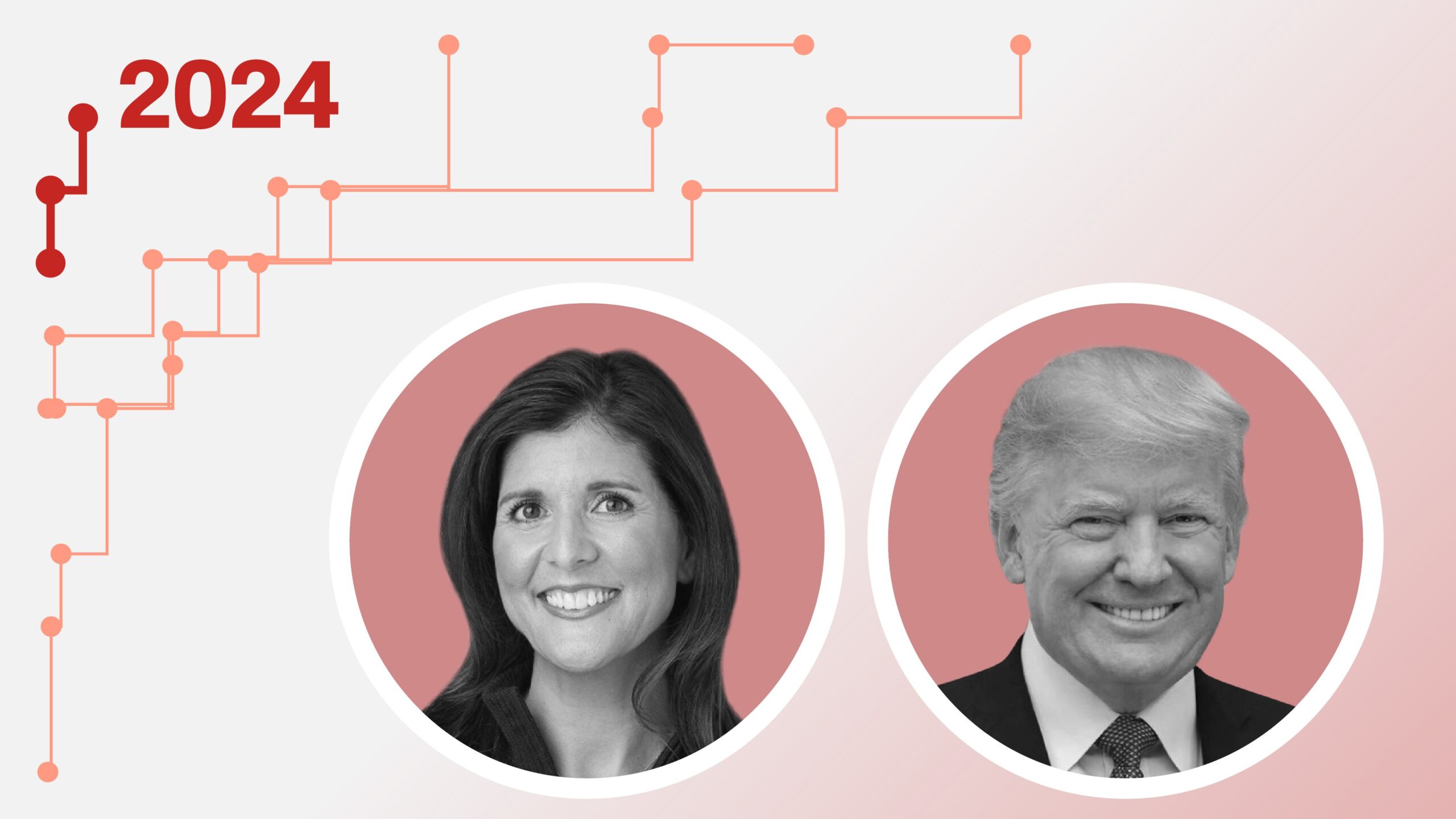In the race to secure the Republican presidential nomination, the New Hampshire primary on Tuesday has narrowed the field down to two main contenders: Donald Trump and Nikki Haley. This comes after Florida Governor Ron DeSantis suspended his campaign on Sunday, throwing his support behind Trump. Other candidates, Vivek Ramaswamy and Asa Hutchinson, also bowed out following lackluster performances in the Iowa caucuses last week.
Historically, the candidate pool often contracts swiftly after the Iowa and New Hampshire primaries, the first two significant contests in the presidential nomination calendar. In the 2016 race, out of the 11 major Republican candidates who participated in Iowa, Trump emerged as the sole contender in just over 90 days. (Major candidates are defined as those who secured more than 1% of the votes in the Iowa caucuses.)
This year, the field has narrowed even more rapidly. Just a week after Iowa, only Haley remains in the race alongside Trump, setting the stage for one of the shortest competitive primary seasons in recent memory. This is a stark contrast to the 2016 Democratic primary, where the race between Hillary Clinton and Bernie Sanders remained competitive throughout the entire primary season.
Trump’s Historic Win in Iowa
Trump’s performance in the recent Iowa caucuses was nothing short of historic. He won 98 out of 99 counties and secured over 50% of the votes, marking the largest victory in the history of the Iowa caucuses. Haley, on the other hand, finished third with 19.1% of the votes.
New Hampshire Polls Show Trump in the Lead
As the focus shifts to New Hampshire, a recent CNN poll conducted by the University of New Hampshire shows Trump leading with 50% support among likely Republican primary voters. Haley trails behind with 39%, while DeSantis held 6% before his exit from the race. When DeSantis’ supporters were asked to reallocate their votes to their second-choice candidates, Trump’s lead over Haley widened to 54% against 41%. An additional 3% of likely GOP primary voters indicated they would vote for another candidate.

